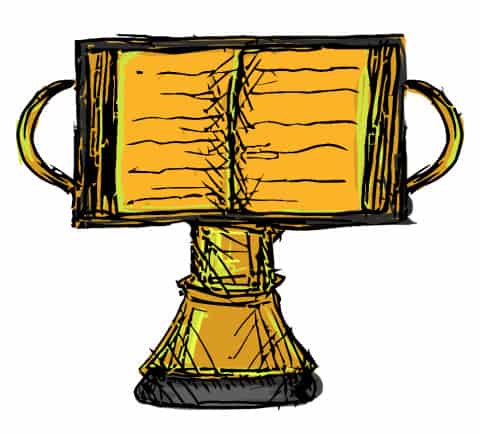As university students, we read all the time — at least in theory — but how often can we read for pleasure? In rare moments of freedom, it can be difficult to choose what to read next. Luckily, the Saskatchewan Book Awards’ shortlist provides a ready-made selection of literary gold right in our backyards!
Fiction
No time for a full-fledged novel? Six authors made the 2016 Fiction Award shortlist, including St. Thomas More College’s creative writing professor, Guy Vanderhaeghe. His nominated work, Daddy Lenin and Other Stories, earned him the Governor General’s Award in 2015. The collection’s nine wryly humorous stories explore masculinity — often broken or dysfunctional — in rural prairie settings.
If you have a little more time, try The Afterlife of Birds, written by Saskatoon’s own Elizabeth Philips, a local favourite of Vanderhaeghe’s. Philips, two-time winner of the Saskatchewan Book Awards’ Poetry Award, felt  that she had a story to tell.
that she had a story to tell.
“I have always wanted to write a novel because I have been a voracious reader of novels since I was about seven or eight,” Philips said, in an email to the Sheaf. “I had a deep desire to know how a novel is written, and I had an idea, or a glimmer of an idea, that I thought would suit the form.”
Afterlife, a finely-crafted, 10-years-in-the-making debut novel, tells the story of Henry Jett, an eccentric young man with a passion for finding and assembling bird skeletons. As Henry struggles to find space for himself in the contemporary world, he builds connections with surprising figures, including an elderly Russian émigré.
“The book may be of interest to anyone who is interested in biology, in absurdity in the form of a search for a wolverine’s penis bone; it may appeal to anybody who likes to read good sentences [or] who likes quirky novels set in a world that is parallel to this one,” Philips said.
Though the novel will charm a wide variety of readers, it may particularly resonate with University of Saskatchewan young adults.
“The novel is about a man in his late 20s, and it is about owning who you are and not letting the people around you dictate your needs and wants, and so in that sense it is a good fit for students who are just figuring out how to live in society and be themselves without compromising what they believe in,” Philips said.
Poetry
If poetry is for you, check out the soulful and musical nakamowin’sa for the seasons, by poet and long-time Aboriginal educator Rita Bouvier, who made the shortlist for three separate awards.
Bouvier, a recent co-ordinator at the Aboriginal Education Research Centre at the U of S, says her poetry is influenced by her Métis cultural heritage, her upbringing in Île-à-la-Crosse, Sask. and what she calls her indigenist/feminist concerns. Nakamowin’sa means “wordsongs” or “little songs” in Bouvier’s first language, Michif, a rarely spoken blend of Cree and French which holds a prominent place throughout her collection.
“Like any language, [Michif] contains a particular structure and makes use of specific stylistic and linguistics devices that … enrich my writing,” Bouvier said, in an email to the Sheaf. “In the Cree/Michif tradition, words have immense power to bring into being what is imagined and spoken. Truths are underscored. Silence holds value. The Cree/Michif words are carefully chosen to remind me of my relationships to all life.”
Bouvier sees her work as a creative intervention that challenges the imagination from a postcolonial stance and calls for responsibility for the world around us. She hopes her work will provide a new perspective while weaving a good story.
“My poetry reflects on survival of everyday life as I navigate its paradoxes and contradictions, sometimes resisting, re-righting, remembering and, most importantly, I hope it reflects a life lived joyfully,” Bouvier said. “I hope they will catch themselves ‘in the dance’ — it is intentional! I hope they too remember, cry, laugh and sing on this physical and spiritual journey called life.”
Whether you’re looking for fiction or poetry, the awards shortlist is a great place to find new literature for spring relaxation — or exam procrastination.
—
Jessica Klaassen-Wright
Graphic: Jeremy Britz / Graphics Editor
Leave a Reply